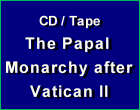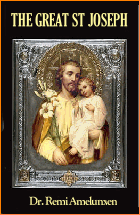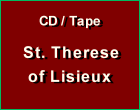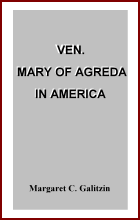Catholic Customs
 |
 |
 |
 |
 |
 |
 |
The Sabbatine Privilege &
the 30 Gregorian Masses
The Sabbatine Privilege is based on the Bull Sacratissimo uti culmine of Pope John XXII, dated March 3, 1322, issued 71 years after Our Lady appeared to St. Simon Stock and gave him the Carmelite Scapular, also known in America as the Brown Scapular.
In this Bull, the Pope declared that the Mother of God appeared to him and urgently recommended the confraternity of the Carmelite Order. She asked the Pope to ratify as Christ's Vicar on earth the indulgences that Our Lord had already granted in Heaven for the members of the Carmelite Order who died wearing its scapular. These were a plenary indulgence for the members of the Carmelite Order and a partial indulgence for the members of its confraternity.
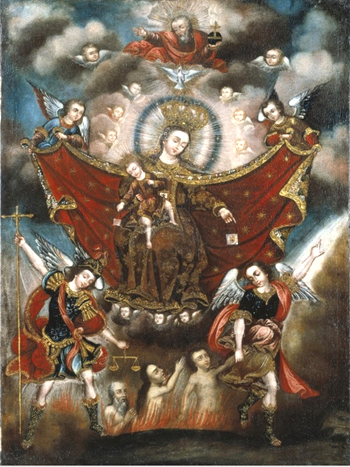 Then, the Blessed Mother affirmed that she would descend from Heaven to Purgatory on the Saturday after their deaths and liberate and conduct to Heaven all who were in Purgatory who had earned this privilege. From this promise of being freed from Purgatory on the following Saturday comes its name, Sabbatine Privilege, since Saturday in Latin is Sabbatum.
Then, the Blessed Mother affirmed that she would descend from Heaven to Purgatory on the Saturday after their deaths and liberate and conduct to Heaven all who were in Purgatory who had earned this privilege. From this promise of being freed from Purgatory on the following Saturday comes its name, Sabbatine Privilege, since Saturday in Latin is Sabbatum.
Pope John XXII wrote at the end of the Bull, "This holy indulgence I therefore accept; I confirm and ratify it on earth just as Jesus Christ has graciously granted it in Heaven on account of the merits of the Virgin Mary."
This Sabbatine Privilege was approved and confirmed by 16 Popes, including St. Pius V (1566). One of the clearest explanations of the assistance promised to souls in Purgatory who fulfilled the conditions of the Sabbatine Privilege is found in a decree of Pope Paul V given in the year 1613:
"It is lawful for the Carmelite Fathers to preach that Catholics may piously believe in the help promised to the souls of the brethren and members of the Confraternity of the Blessed Virgin of Mount Carmel, namely, that the Blessed Virgin will assist by her continual intercession, suffrages and merits and also by her special protection, particularly on the Saturday after death (which day has been consecrated to her by the Church) the souls of the brothers and the members of the Confraternity departing this life in charity who shall have worn the habit [scapular], and shall have observed chastity according to their particular state of life, and also have recited the Little Office or, if unable to read, have kept the fasts of the Church, and have abstained from the use of meat on Wednesdays and Saturdays, unless the Feast of the Nativity of Our Divine Lord should fall on one of those days."
Pope Benedict XIV declared that the faithful should rely on the Sabbatine Privilege and that neither the original Bull nor the apparition of the Blessed Mother could be contested (Opera omnia, 1767).
The Sabbatine Privilege thus consists essentially in the early liberation from Purgatory through the special intercession and petition of Our Lady on the day consecrated to her, Saturday. (1)
The conditions of the Privilege
Many persons have the mistaken idea that anyone who dies wearing the Brown Scapular will go to Purgatory and be liberated by Our Lady on the first Saturday after their death. This is not the case.
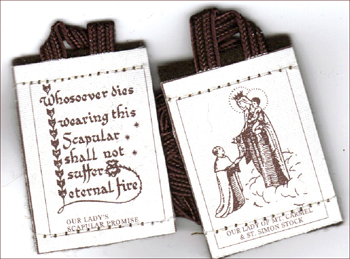 The Sabbatine Privilege clearly affirms that the early liberation from Purgatory applies only to those who wear the Scapular and fulfill other conditions. The conditions of the Sabbatine Privilege are three:
The Sabbatine Privilege clearly affirms that the early liberation from Purgatory applies only to those who wear the Scapular and fulfill other conditions. The conditions of the Sabbatine Privilege are three:
1. The wearing of the Brown Scapular of Our Lady of Mount Carmel. The wearer must have been officially enrolled in the Scapular. This official reception is made by a priest who places a scapular on the person and then recites a particular prayer. This needs to be done only once in a person's life;
2. Living a life of chastity according to one's state in life;
3. The daily recitation of the Little Office of the Blessed Virgin Mary.
Instead of reciting the Little Office, persons who cannot read should observe all the fasts observed by the Catholic Church and in addition abstain from flesh meat on all Wednesdays and Saturdays of the year except when Christmas falls on one of these days.
The faculty to change this condition to gain the privilege was granted to all confessors by Pope Leo XIII in the Decree of the Congregation of Indulgences of June 1901. According to this decree, any priest with diocesan faculties may commute the recitation of the Little Office to some other pious work, ordinarily the daily recitation of the 15 decades of the Rosary. Most lay persons simply ask a priest to approve this substitution.
Therefore, it is important not only to wear the scapular, but also to fulfill the other conditions of the Privilege. Our Lady revealed to Venerable Dominic of Jesus and Mary: "Although many wear my Scapular, only a few fulfill the conditions for the Sabbatine Privilege."
Is the Sabbatine Privilege still in force?
It is being claimed today that since the Sabbatine Privilege is no longer listed in the Church Enchiridion Indulgentiarum (list of indulgences), and since all indulgences from previous times were explicitly abrogated by the current Enchiridion, some conclude that the Sabbatine Privilege has also been abrogated.
Today's apostate Hierarchy made this progressivist ploy against the indulgences to create confusion among Catholics and to make the Catholic Church more similar to Protestantism - which abhors all indulgences - as well as to denigrate and destroy all that is sacral.
The strong and continual approbation of the Sabbatine Privilege by so many Popes in the past gives faithful Catholics confidence that it will be effective forever and encourages them to adopt this sound tradition. As the Bull of Pope John XXII explained, the Sabbatine Privilege is simply the ratification on earth of the indulgences that Our Lord Jesus Christ has already granted in Heaven. Clearly, it cannot be so easily abrogated.
It is the opinion of this writer that priests should make the Sabbatine Privilege better known and Catholics should embrace it as an opportunity of a great grace given to us by our Blessed Mother.
The Thirty Gregorian Masses
Like the Sabbatine Privilege, the Thirty Gregorian Masses pertain to the release of souls from Purgatory through the assistance of Our Lady. ( 2)
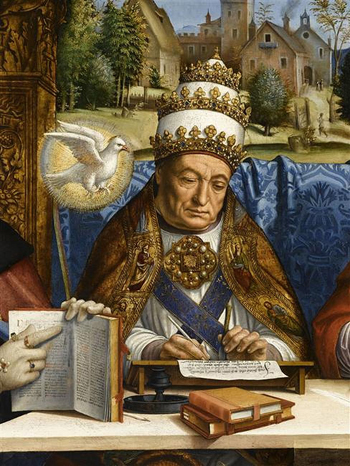 The practice of Thirty Gregorian Masses was founded by Pope Gregory the Great in 590 AD in St. Andrew's Monastery in Rome. He established that 30 Masses offered on 30 consecutive days without interruption release a specific soul from Purgatory. Historical verification of the efficaciousness of the Thirty Gregorian Masses is impressive.
The practice of Thirty Gregorian Masses was founded by Pope Gregory the Great in 590 AD in St. Andrew's Monastery in Rome. He established that 30 Masses offered on 30 consecutive days without interruption release a specific soul from Purgatory. Historical verification of the efficaciousness of the Thirty Gregorian Masses is impressive.
That this pious practice was established by St. Gregory the Great speaks much in its favor. This Saint not only gave us the Gregorian Sacramentary (which is essentially the Mass the way it was always said, and became known today as the Tridentine Mass), but he also made a consolidation of universal Catholic prayers for the dead.
The Thirty Gregorian Masses have been widely used in Benedictine Monasteries since the early Middle Ages. Only the feasts of Christmas, Easter and the Holy Week Tridium, when they fall among the thirty Masses, can interrupt them without breaking the privilege.
The Gregorian Masses are often offered on a privileged altar, although it is not obligatory. When the practice began, it was limited solely to the Masses said at the altar at the Monastery of St. Andrew in Rome used by St. Gregory when he was Abbot of St. Andrew. Later, that same privilege was extended to other altars in Rome, and then elsewhere. Pope Leo XIII declared that a single Mass at a privileged altar is equivalent to the Thirty Gregorian Masses.
The Gregorian Thirty falls into disuse
In his article on the Thirty Gregorian Masses, Fr. Stephen Somerville answers the question of why this practice was discontinued after Vatican II. He does not believe it was put aside for practical reasons. Rather, he affirms:
"Ecumenism probably works to render low-profile or to discontinue the Thirty Mass practice. It is a bold and emphatic reminder of the doctrine of Purgatory and of the importance of prayers and Masses said for the faithful departed, things which are outside Protestant belief, and therefore apt to raise Protestant hackles."
Most young priests do not even know what the Thirty Gregorian Masses are.
Today, finding priests or monasteries to say the Thirty Masses in a row can be difficult, but it is possible (click here and here).
Like the Sabbatine Privilege, the Thirty Gregorian Masses is a long-honored tradition of the Church that offers relief to the souls in Purgatory. As Catholics faithful to the Magisterium of the Church, we should do all we can to help those Poor Souls, especially those of our families and friends.
Eternal rest grant unto them, O Lord, and let perpetual light shine upon them. May they rest in peace. Amen.

In this Bull, the Pope declared that the Mother of God appeared to him and urgently recommended the confraternity of the Carmelite Order. She asked the Pope to ratify as Christ's Vicar on earth the indulgences that Our Lord had already granted in Heaven for the members of the Carmelite Order who died wearing its scapular. These were a plenary indulgence for the members of the Carmelite Order and a partial indulgence for the members of its confraternity.

Our Lady offers relief and liberates souls suffering in Purgatory
Pope John XXII wrote at the end of the Bull, "This holy indulgence I therefore accept; I confirm and ratify it on earth just as Jesus Christ has graciously granted it in Heaven on account of the merits of the Virgin Mary."
This Sabbatine Privilege was approved and confirmed by 16 Popes, including St. Pius V (1566). One of the clearest explanations of the assistance promised to souls in Purgatory who fulfilled the conditions of the Sabbatine Privilege is found in a decree of Pope Paul V given in the year 1613:
"It is lawful for the Carmelite Fathers to preach that Catholics may piously believe in the help promised to the souls of the brethren and members of the Confraternity of the Blessed Virgin of Mount Carmel, namely, that the Blessed Virgin will assist by her continual intercession, suffrages and merits and also by her special protection, particularly on the Saturday after death (which day has been consecrated to her by the Church) the souls of the brothers and the members of the Confraternity departing this life in charity who shall have worn the habit [scapular], and shall have observed chastity according to their particular state of life, and also have recited the Little Office or, if unable to read, have kept the fasts of the Church, and have abstained from the use of meat on Wednesdays and Saturdays, unless the Feast of the Nativity of Our Divine Lord should fall on one of those days."
Pope Benedict XIV declared that the faithful should rely on the Sabbatine Privilege and that neither the original Bull nor the apparition of the Blessed Mother could be contested (Opera omnia, 1767).
The Sabbatine Privilege thus consists essentially in the early liberation from Purgatory through the special intercession and petition of Our Lady on the day consecrated to her, Saturday. (1)
The conditions of the Privilege
Many persons have the mistaken idea that anyone who dies wearing the Brown Scapular will go to Purgatory and be liberated by Our Lady on the first Saturday after their death. This is not the case.

Some scapulars wrongly imply just wearing the brown scapular earns the Sabbatine Privilege
1. The wearing of the Brown Scapular of Our Lady of Mount Carmel. The wearer must have been officially enrolled in the Scapular. This official reception is made by a priest who places a scapular on the person and then recites a particular prayer. This needs to be done only once in a person's life;
2. Living a life of chastity according to one's state in life;
3. The daily recitation of the Little Office of the Blessed Virgin Mary.
Instead of reciting the Little Office, persons who cannot read should observe all the fasts observed by the Catholic Church and in addition abstain from flesh meat on all Wednesdays and Saturdays of the year except when Christmas falls on one of these days.
The faculty to change this condition to gain the privilege was granted to all confessors by Pope Leo XIII in the Decree of the Congregation of Indulgences of June 1901. According to this decree, any priest with diocesan faculties may commute the recitation of the Little Office to some other pious work, ordinarily the daily recitation of the 15 decades of the Rosary. Most lay persons simply ask a priest to approve this substitution.
Therefore, it is important not only to wear the scapular, but also to fulfill the other conditions of the Privilege. Our Lady revealed to Venerable Dominic of Jesus and Mary: "Although many wear my Scapular, only a few fulfill the conditions for the Sabbatine Privilege."
Is the Sabbatine Privilege still in force?
It is being claimed today that since the Sabbatine Privilege is no longer listed in the Church Enchiridion Indulgentiarum (list of indulgences), and since all indulgences from previous times were explicitly abrogated by the current Enchiridion, some conclude that the Sabbatine Privilege has also been abrogated.
Today's apostate Hierarchy made this progressivist ploy against the indulgences to create confusion among Catholics and to make the Catholic Church more similar to Protestantism - which abhors all indulgences - as well as to denigrate and destroy all that is sacral.
The strong and continual approbation of the Sabbatine Privilege by so many Popes in the past gives faithful Catholics confidence that it will be effective forever and encourages them to adopt this sound tradition. As the Bull of Pope John XXII explained, the Sabbatine Privilege is simply the ratification on earth of the indulgences that Our Lord Jesus Christ has already granted in Heaven. Clearly, it cannot be so easily abrogated.
It is the opinion of this writer that priests should make the Sabbatine Privilege better known and Catholics should embrace it as an opportunity of a great grace given to us by our Blessed Mother.
The Thirty Gregorian Masses
Like the Sabbatine Privilege, the Thirty Gregorian Masses pertain to the release of souls from Purgatory through the assistance of Our Lady. ( 2)

Inspired by the Holy Spirit, Pope St. Gregory gave us the privilege of the Thirty Gregorian Masses
That this pious practice was established by St. Gregory the Great speaks much in its favor. This Saint not only gave us the Gregorian Sacramentary (which is essentially the Mass the way it was always said, and became known today as the Tridentine Mass), but he also made a consolidation of universal Catholic prayers for the dead.
The Thirty Gregorian Masses have been widely used in Benedictine Monasteries since the early Middle Ages. Only the feasts of Christmas, Easter and the Holy Week Tridium, when they fall among the thirty Masses, can interrupt them without breaking the privilege.
The Gregorian Masses are often offered on a privileged altar, although it is not obligatory. When the practice began, it was limited solely to the Masses said at the altar at the Monastery of St. Andrew in Rome used by St. Gregory when he was Abbot of St. Andrew. Later, that same privilege was extended to other altars in Rome, and then elsewhere. Pope Leo XIII declared that a single Mass at a privileged altar is equivalent to the Thirty Gregorian Masses.
The Gregorian Thirty falls into disuse
In his article on the Thirty Gregorian Masses, Fr. Stephen Somerville answers the question of why this practice was discontinued after Vatican II. He does not believe it was put aside for practical reasons. Rather, he affirms:
"Ecumenism probably works to render low-profile or to discontinue the Thirty Mass practice. It is a bold and emphatic reminder of the doctrine of Purgatory and of the importance of prayers and Masses said for the faithful departed, things which are outside Protestant belief, and therefore apt to raise Protestant hackles."
Most young priests do not even know what the Thirty Gregorian Masses are.
Today, finding priests or monasteries to say the Thirty Masses in a row can be difficult, but it is possible (click here and here).
Like the Sabbatine Privilege, the Thirty Gregorian Masses is a long-honored tradition of the Church that offers relief to the souls in Purgatory. As Catholics faithful to the Magisterium of the Church, we should do all we can to help those Poor Souls, especially those of our families and friends.
Eternal rest grant unto them, O Lord, and let perpetual light shine upon them. May they rest in peace. Amen.
- Cfr. The Catholic Encyclopedia, Albany NY: JB Lyon Co., 1912, vol. XIII, pp. 289-290
- See Fr. Stephen Somerville's excellent article on the Thirty Gregorian Masses on this website.

Posted July 29, 2013
______________________
______________________



